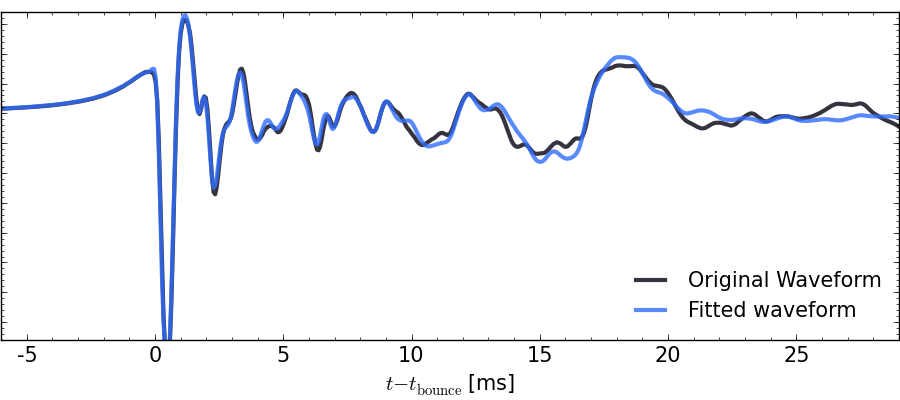W. Engels, R. Frey, C. Ott
Here we provide a Python module to aid in the analysis of core-collapse supernova gravitational waves. It is the companion code for Engels, Frey, Ott 2014, Phys. Rev. D. 90, 124026.
Useful For:
- The analysis of parameter influence on core-collapse GW morphology
- Creating and testing various analytic approximations of core-collapse waveforms
Details
- Includes the Abdikamalov et al. 2014 catalog for example use
- Packaged on PyPi and Github to be easy to install and use
- Uses simplified formula language (like in the R language) tailored to this domain
The code, installation instructions, and usage guide are posted on Github

Paper Abstract
We present a new multivariate regression model for analysis and parameter estimation of gravitational waves observed from well but not perfectly modeled sources such as core-collapse supernovae. Our approach is based on a principal component decomposition of simulated waveform catalogs. Instead of reconstructing waveforms by direct linear combination of physically meaningless principal components, we solve via least squares for the relationship that encodes the connection between chosen physical parameters and the principal component basis. Although our approach is linear, the waveforms' parameter dependence may be non-linear. For the case of gravitational waves from rotating core collapse, we show, using statistical hypothesis testing, that our method is capable of identifying the most important physical parameters that govern waveform morphology in the presence of simulated detector noise. We also demonstrate our method's ability to predict waveforms from a principal component basis given a set of physical progenitor parameters.
